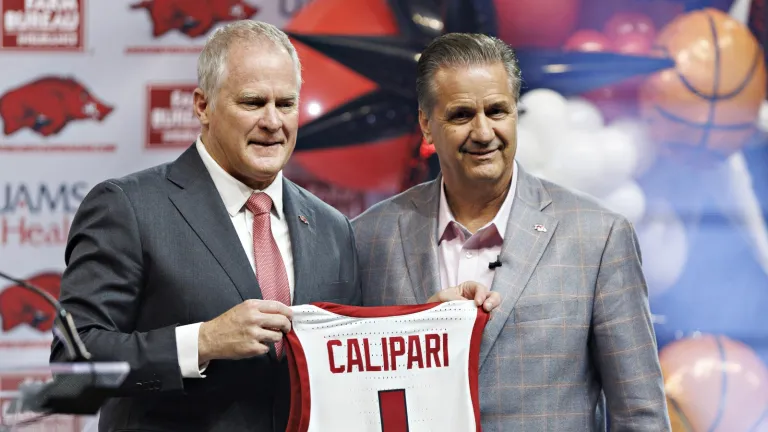The story about Arkansas Razorbacks’ basketball program landing John Calipari, coupled with significant NIL support, underscores how high-profile donors like Walmart, Tyson Foods, and JB Hunt are reshaping the college sports landscape. These donors’ involvement, particularly in facilitating Calipari’s transition from Kentucky to Arkansas, shows just how powerful NIL (Name, Image, Likeness) funding has become in modern recruiting. The rumored $5-6 million NIL fund earmarked for recruiting has propelled the Razorbacks to one of the top-ranked 2024 classes, including the No. 1 transfer class.
While the basketball program is thriving under this model, the same can’t be said for Arkansas football. Athletic Director Hunter Yurachek made headlines when he openly expressed frustration over the lack of comparable financial support for the football program during a Little Rock Touchdown Club event. He cited Arkansas falling behind SEC rivals in terms of NIL backing, specifically pointing to Ole Miss as an example of how other programs have surged ahead.
Yurachek’s plea for additional NIL support highlights a growing divide within Arkansas athletics. While basketball is reaping the rewards of substantial donor investment, the football program is still “lightyears behind,” according to Yurachek. His public call for more NIL contributions reflects the broader challenges many athletic departments face in balancing support across multiple sports in an increasingly competitive landscape where NIL funding plays a central role.
The AD claimed that the Rebels have 5x as much support for their football program, which is currently ranked in the Top 5 in the AP Poll.
If Arkansas wants to experience the same success, a similar commitment needs to be made.
Begging average donors to pick up the slack while having the likes of Walmart and Tyson Foods in your back pocket can rub some the wrong way, but Yurachek says it doesn’t please him to make the ask.
In fact, he bluntly said that being an AD in the NIL climate has been “awful.”
The landscape in college sports has changed. Arkansas used big NIL dollars to bolster its basketball program. Now, the Razorbacks are counting on the lower-level donors to improve the football product.
